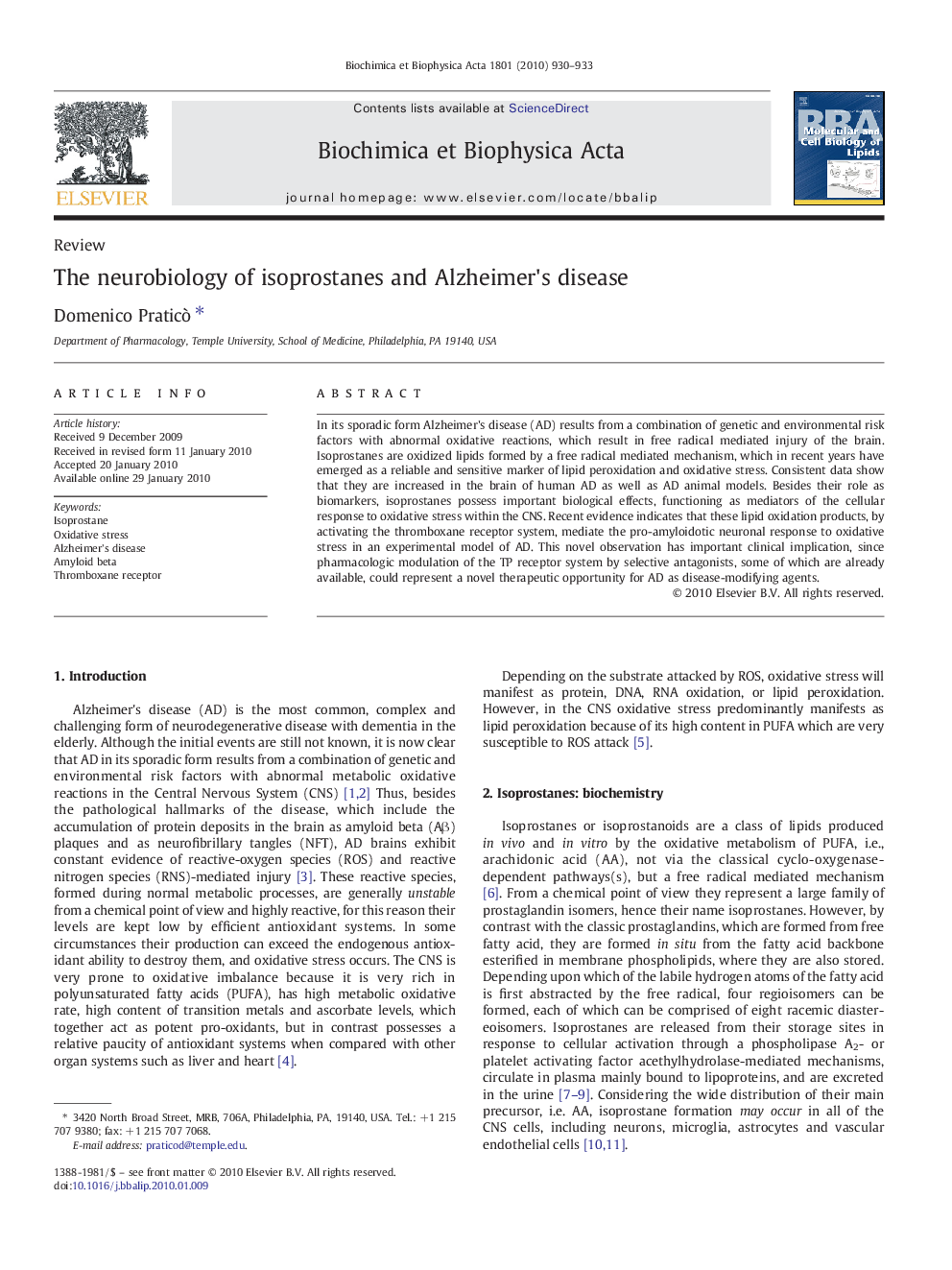| کد مقاله | کد نشریه | سال انتشار | مقاله انگلیسی | نسخه تمام متن |
|---|---|---|---|---|
| 1949674 | 1537774 | 2010 | 4 صفحه PDF | دانلود رایگان |

In its sporadic form Alzheimer's disease (AD) results from a combination of genetic and environmental risk factors with abnormal oxidative reactions, which result in free radical mediated injury of the brain. Isoprostanes are oxidized lipids formed by a free radical mediated mechanism, which in recent years have emerged as a reliable and sensitive marker of lipid peroxidation and oxidative stress. Consistent data show that they are increased in the brain of human AD as well as AD animal models. Besides their role as biomarkers, isoprostanes possess important biological effects, functioning as mediators of the cellular response to oxidative stress within the CNS. Recent evidence indicates that these lipid oxidation products, by activating the thromboxane receptor system, mediate the pro-amyloidotic neuronal response to oxidative stress in an experimental model of AD. This novel observation has important clinical implication, since pharmacologic modulation of the TP receptor system by selective antagonists, some of which are already available, could represent a novel therapeutic opportunity for AD as disease-modifying agents.
Journal: Biochimica et Biophysica Acta (BBA) - Molecular and Cell Biology of Lipids - Volume 1801, Issue 8, August 2010, Pages 930–933